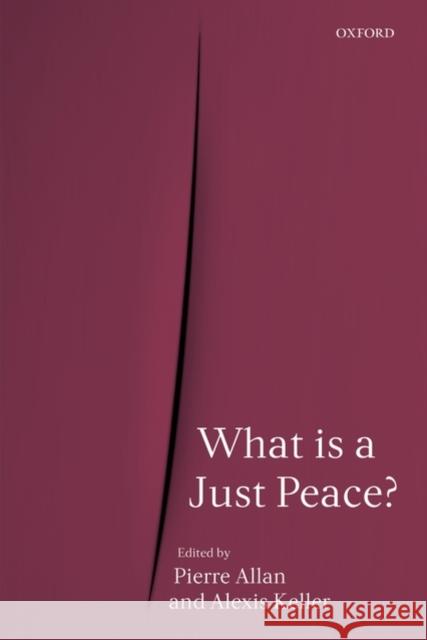What Is a Just Peace? » książka
What Is a Just Peace?
ISBN-13: 9780199545711 / Angielski / Miękka / 2008 / 272 str.
What Is a Just Peace?
ISBN-13: 9780199545711 / Angielski / Miękka / 2008 / 272 str.
(netto: 189,34 VAT: 5%)
Najniższa cena z 30 dni: 191,77
ok. 16-18 dni roboczych.
Darmowa dostawa!
Just war has attracted considerable attention. The words peace and justice are often used together. Surprisingly, however, little conceptual thinking has gone into what constitutes a just peace. This book, which includes some of the world's leading scholars, debates and develops the concept of just peace.
The problem with the idea of a just peace is that striving for justice may imply a just war. In other words, peace and justice clash at times. Therefore, one often starts from a given view of what constitutes justice, but this a priori approach leads--especially when imposed from the outside--straight into discord. This book presents conflicting viewpoints on this question from political, historical, and legal perspectives as well as from a policy perspective.
This book also argues that a just peace is a mediated peace. It is just, because it is based on conventions that are negotiated and recognized by the parties. Mutual recognition is central: parties recognize each other as agents that have an identity. Consent is necessary, too: all parties need to approve a solution; therefore, each party needs to understand what allows the other to remain "self." And renouncement: concessions are necessary, some symbols and positions need to be sacrificed. In this sense, the Geneva Initiative--the first comprehensive Israeli-Palestinian peace plan--is a mediated peace.
Thus the book challenges a liberal view of peace founded on norms claiming universal scope. This liberal conception has difficulty in solving conflicts such as civil wars characterized typically by fundamental disagreements between different communities. Cultures make demands that are identity-defining, and some of these defy the "cultural neutrality" that is one of the foundations of liberalism. Thus, the concept of just peace cannot be solved within liberalism--nor for that matter within communitarianism.











